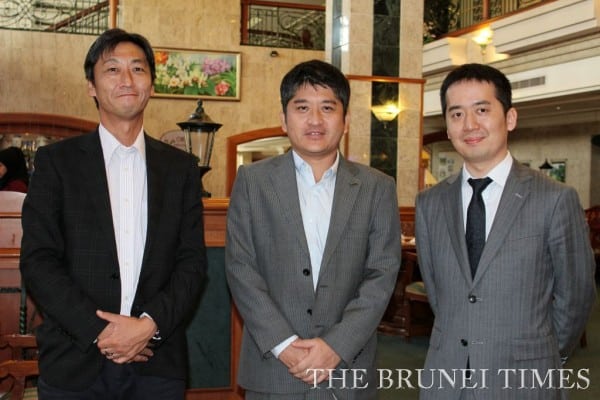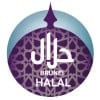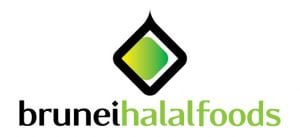By Zafirah Zaili, The Brunei Times
THE increasing number of Muslim travellers visiting Japan annually and the high standard of Brunei’s Halal certification presents numerous investment opportunities for businessmen from both countries, said an advisor from the Economic Research Institute for ASEAN and East Asia (ERIA).

According to Japan National Tourism Organisation, a record 19.73 million people visited Japan in 2015, marking the first time in 45 years that the number of incoming travelers surpassed the outbound figure.
In an interview with the media, Okouchi Hiroshi, personal advisor to the executive director for Brunei Affairs of ERIA, said that Japan continues to enjoy a tourist boom where a large portion are Muslim travellers, thus increasing the importance of developing the country’s Halal industry.
“There’s little knowledge on how to get Halal accreditation in Japan but now businesses are taking it more seriously because of the increasing Muslim market coming to Japan,” he said.
Hiroshi said that Japanese businesses can learn from Brunei on how to develop their halal industry.
For Brunei, it will enhance its reputation as a premium Halal certification agency internationally, he added.
Hiroshi said that although there are other halal certification agencies in the region such as Jakim in Malaysia and MUI in Indonesia, they see more potential in Brunei as the Brunei Halal standard has been reported to be one of the most stringent standards in the world.
Having done their research on the country’s Halal accreditation process, Hiroshi said that they will now focus on passing on information to interested businessmen and investors in Japan who wish to work with Brunei to develop Halal products.
“We’ve met with several agencies including DARe and the Ministry of Religious Affairs and as we now have more information on the certification process, we want more people in Japan to grab the opportunity to move towards halal,” he said.
Hiroshi along with other members of ERIA and the Japanese External Trade Organisation (JETRO) were in the country on a working visit to learn more regarding Brunei’s Halal industry and the opportunities present in the market.
Their working visit included meetings with the Global Halal Industry Development Division, Darussalam Enterprise (DARe) and Ghanim International Corporation Sdn Bhd.
The group also made site visits to the Halal Science Centre, Golden Corporation Sdn Bhd and Bio-Innovation Corridor (BIC).
ARTICLE TWO
Hakim Hayat – Borneo Bulletin
Brunei Halal certification has everything to conquer the world
BRUNEI Darussalam’s Halal certification has huge potential in the Japanese market due to its stringent and business-friendly processes that would help firms to cater to the increasing demand for quality Halal food, said a Japanese delegation.
The Sultanate can also become a global manufacturing hub for Halal products in the regional market and beyond, added the delegation which conducted a survey on the Halal certification process here recently.
Speaking to the Weekend Bulletin after leading a week-long survey and meetings with relevant bruneihalal brand and certification stakeholders, Okouchi Hiroshi, Personal Advisor to the Executive Director for Brunei Affairs at the Economic Research Institute for Asean and East-Asia (ERIA), noted that given the increasing population of Japanese Muslims and tourists coming in to Japan, there is very big interest among investors in the Halal market in the land of the rising sun, which he said Brunei can leverage on, especially in the “premium” Halal segment.
Okuchi, who is based in Brunei, said his colleagues in the delegation from ERIA, Tetsuya Enomoto and Nobuyuki Mori, were very impressed throughout the survey, and would recommend the bruneihalal brand to potential investors in Japan, whom they said are ready to tap into the multi-billion dollar market that is gaining positive momentum.
The survey, done by ERIA in collaboration with the Japan External Trade Organisation (JETRO), found that the Brunei Halal certification process is distinctive to its counterparts in the region such as Malaysia, Indonesia and Thailand, given Brunei’s credibility and also stringent requirement for Halal certification mechanism.
Comparing the Halal certification processes, Tetsuya explained that for instance in Indonesia, the process is not officially carried out by a government entity, but rather by a private certification board, while in Malaysia, although the certification process is done by a government entity, its auditing process has been sourced out to the private sector.
“Brunei Halal certification is carried out by its Ministry of Religious Affairs (MoRA) and the auditing is done by its own staff, so it is purely an official certification mechanism which we believe is the one and only in the world,” he said, adding that the stringent requirements are also laudable such as the total exemption of alcohol in any food or beverages and cosmetic products as well as strict lab tests.
Being a country that has Syariah law in place is also an advantage, Tetsuya said, giving the country more credibility than its competitors.
Incentives such as government grants, exemption or discount on taxes and cheap labour available in Brunei are also benefits that might lure investors into using the Brunei Halal certification process, Tetsuya added, highlighting that some of these benefits are not available in other markets for investors in the Halal industry.
Okouchi said findings of their survey would be published in Japan through ERIA and JETRO, and that the delegation hopes to give the report more exposure through seminars to identify mutually beneficial business opportunities in Japan and Brunei in the premium Halal market.
He said some of the potential business opportunities include assisting major Japanese food corporations and brands trying to break into the Middle-Eastern market. They would need strict Halal certification before it reaches to the market.
“Currently, many of these big brands are not keen to open manufacturing bases in these countries due to political instability and other factors, but Brunei, with its stable conditions and viable business environment, could be a hub for them to process these products and export to markets such as the Middle-East,” he said.
Meanwhile, Nobuyuki Mori said there are a great number of Japanese manufacturers interested in exporting to the Halal markets, while hoping that the Brunei Halal certification will offer a good groundwork for these exporters.




